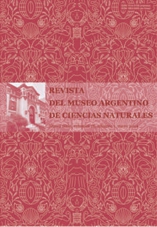Estudios entomopalinológicos y estado fisiológico del "picudo del algodonero" Anthonomus grandis Boh. (Coleoptera, Curculionidae) en Corrientes, Argentina.
Resumen
Entomopalynological study and physiological state of the "boll weevil" Anthonomus grandis Boh. (Coleoptera, Curculionidae) in Corrientes, Argentina. Feeding host of boll weevils were established by identifying pollen grains ingested by weevils captured from January until December of 1999. The insects were captured using pheromone traps. Survey was conducted in weevil infested areas of the province of Corrientes in routes that cross the departments of San Miguel, Ituzaingó and Santo Tomé. The feeding host are very important, since they may contribute to greater survival without cotton crops. About 346 individuals were dissected and some totals of 2,132 pollen grains from 15 species of plants were identified (e.g., Malvaceae, Compositae, Solanaceae and Euphorbiaceae). Cluster and correspondence analysis showed that weevil tended to feed on particular species at different seasons. The relationships among sampling dates: capture time, different reproductive stages, sex, and levels of magnitudes of abundance for individual, were analyzed using loglinear model. The statistical employee was the X2 of Pearson with a level of rejection of the null hypothesis of P<0.01. Significant interactions were found among some the different variables. According to main results obtained a high percentage of the boll weevil individuals show appropriate physiological conditions for dispersion at long distances and for searching cotton fields where to continue their life cycle during the summer.
Texto completo:
PDFEnlaces refback
- No hay ningún enlace refback.

This work is licensed under a Creative Commons Attribution 3.0 License.

